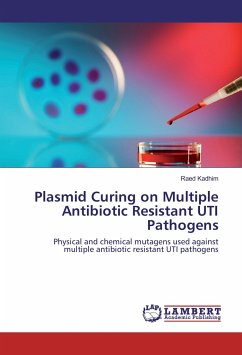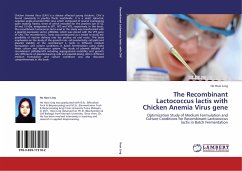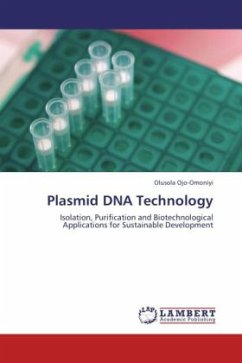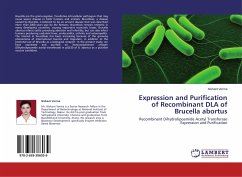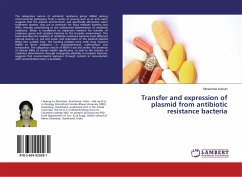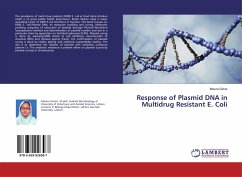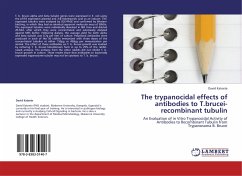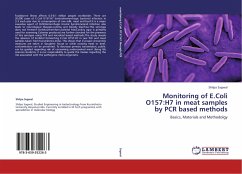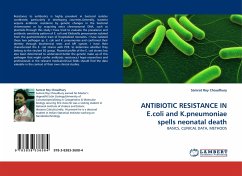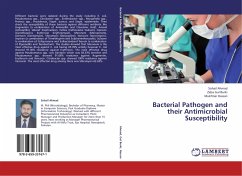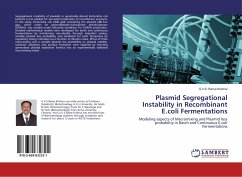
Plasmid Segregational Instability in Recombinant E.coli Fermentations
Modeling aspects of Macromixing and Plasmid loss probability in Batch and Continuous E.coli Fermentations
Versandkostenfrei!
Versandfertig in 6-10 Tagen
27,99 €
inkl. MwSt.

PAYBACK Punkte
14 °P sammeln!
Segregational instability of plasmids in genetically altered Escherichia coli bacteria is not suitable for successful production of recombinant products. In this study, Escherichia coli C600 galK containing the plasmid pBR Eco gap, which codes for glyceraldehyde-3-phosphate dehydrogenase (GAPDH), was studied under industrial conditions for GAPDH production. Detailed mathematical models were developed for batch and continuous fermentations by introducing non-ideality through imperfect mixing, variable plasmid loss probability, and simulated for both fermenters by regulating mixing intensities (...
Segregational instability of plasmids in genetically altered Escherichia coli bacteria is not suitable for successful production of recombinant products. In this study, Escherichia coli C600 galK containing the plasmid pBR Eco gap, which codes for glyceraldehyde-3-phosphate dehydrogenase (GAPDH), was studied under industrial conditions for GAPDH production. Detailed mathematical models were developed for batch and continuous fermentations by introducing non-ideality through imperfect mixing, variable plasmid loss probability, and simulated for both fermenters by regulating mixing intensities (as a function of dilution rates). Effect of finite macromixing and a variable plasmid loss probability on plasmid stability, substrate utilization and product formation were explored by inserting generalized plasmid replication kinetics into an experimentally validated macromixing model.



